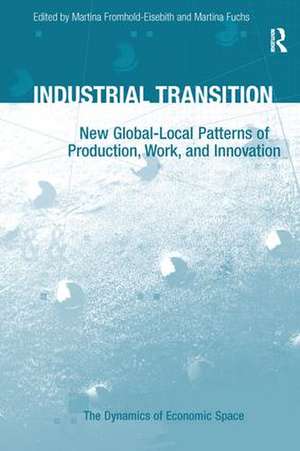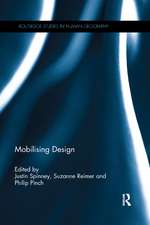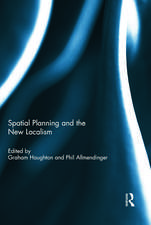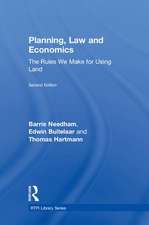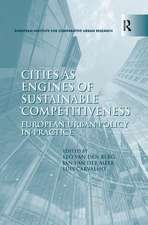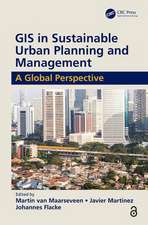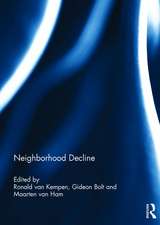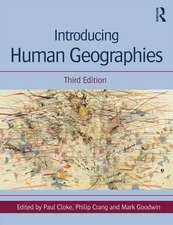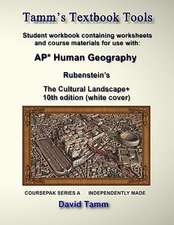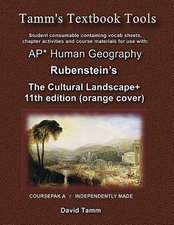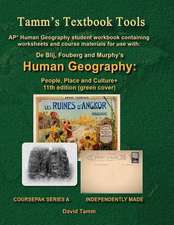Industrial Transition: New Global-Local Patterns of Production, Work, and Innovation
Autor Martina Fuchs Editat de Martina Fromhold-Eisebithen Limba Engleză Paperback – 17 oct 2016
| Toate formatele și edițiile | Preț | Express |
|---|---|---|
| Paperback (1) | 469.34 lei 6-8 săpt. | |
| Taylor & Francis – 17 oct 2016 | 469.34 lei 6-8 săpt. | |
| Hardback (1) | 1057.89 lei 6-8 săpt. | |
| Taylor & Francis – 30 mai 2012 | 1057.89 lei 6-8 săpt. |
Preț: 469.34 lei
Nou
Puncte Express: 704
Preț estimativ în valută:
89.83€ • 93.43$ • 75.28£
89.83€ • 93.43$ • 75.28£
Carte tipărită la comandă
Livrare economică 13-27 martie
Preluare comenzi: 021 569.72.76
Specificații
ISBN-13: 9781138255401
ISBN-10: 1138255408
Pagini: 264
Dimensiuni: 156 x 234 x 14 mm
Greutate: 0.45 kg
Ediția:1
Editura: Taylor & Francis
Colecția Routledge
Locul publicării:Oxford, United Kingdom
ISBN-10: 1138255408
Pagini: 264
Dimensiuni: 156 x 234 x 14 mm
Greutate: 0.45 kg
Ediția:1
Editura: Taylor & Francis
Colecția Routledge
Locul publicării:Oxford, United Kingdom
Notă biografică
Martina Fromhold-Eisebith, Full Professor (Chair) of Economic Geography, Department of Geography, RWTH Aachen University, Germany and Martina Fuchs, Full Professor of Geography, Department of Economic and Social Geography, University of Cologne, Germany
Recenzii
'This volume contains a rich collection of research-based chapters, studying a variety of industries, countries and regions. It sheds new light on the dynamics of globalization and the remaining role of local influences. Readers of the book will find stimulating insights and original empirical results, based on new conceptual ideas about the dynamics of "industrial transition".' Mike Geppert, University of Surrey, UK 'In an era of disruptive change and highly uneven adaptation, this rich and international collection of key voices provides an important contribution to our understanding of theory, policy and practice.' Andy Pike, Newcastle University, UK '... the industrial transition theme works as a template to draw together a strong collection of chapters, taking the reader to a diversity of changing industrial settings, and to consider a palette of potential research approaches.' Regional Studies
Cuprins
Chapter 1 Changing Global-Local Dynamics of Economic Development? Coining the New Conceptual Framework of ‘Industrial Transition’, Martina Fromhold-Eisebith, Martina Fuchs; Chapter 2 Industry, Enterprise, Economic Growth and Recession: Forgotten Issues in Economic Geography, Michael Taylor; Chapter 3 The Transition of the Automotive Industry as a Catalyst for Cross-Border Networking? The Case of the Greater Region SaarLorLux, Christoph K. Hahn; Chapter 4 Industrial Restructuring by Financial Investors? Buy-and-Build Strategies in the German Automotive Supplier Industry from 2000 to 2010, Christoph Scheuplein; Chapter 5 Flexible Specialization – Thirty Years after the ‘Second Industrial Divide’: Lessons from the German Mechanical Engineering Industry in the Crisis 2008 to 2010, Martina Fuchs, Hanno Kempermann; Chapter 6 Organisation and Representation of Temporary Workers, Dorit Meyer; Chapter 7 Industry Transition and Knowledge-Based Sectors: Changing Economic Governance and Institutional Arrangements in the Scottish Life Sciences, Kean Birch, Andrew Cumbers; Chapter 8 Strategic Coupling between Multinational Subsidiaries and KIBS as a Mode of Regional Industrial Transition, Leo van Grunsven, Wouter Jacobs, Oedzge Atzema, Ton van Rietbergen; Chapter 9 Regional Growth Dynamics: Intra-Firm Adjustment vs. Organizational Ecology, Harald Bathelt, Andrew M. Munro; Chapter 10 Transnational Entrepreneurs and the Global Shift of Production: The Example of Diamond Manufacturing, Sebastian Henn; Chapter 11 China as a Western Musical Instrument Producer: Case Study of the Piano Industry, Shiuh-Shen Chien, Jici Wang, Yu Ho, Mingbo Ma; Chapter 12 Spatial and Organisational Transition of an East Asian High-Growth Region: The Electronics Industry in the Greater Pearl River Delta, Daniel Schiller; Chapter 13 Economic Competitiveness, ‘Glurbanisation’ and ‘Soft’ Spatial Interventions: Insights from Four Australasian Cities, Steffen Wetzstein; Chapter 14 Conclusion: Towards a Refined Conceptualization of the Industrial Transition Approach in a Global-Local Context, Martina Fuchs, Martina Fromhold-Eisebith;
Descriere
Contributions by an international set of renowned economic geographers highlight the major features of 'industrial transition' and address various questions that matter for the future of our global economy: How are regions and localities affected by the shift of product mandates? In which ways does change differ between industrial sectors and economic regions? How can regions and localities adequately prepare for or react to foreseeable changes; and how can regional resilience and response capacities be built and enhanced?
